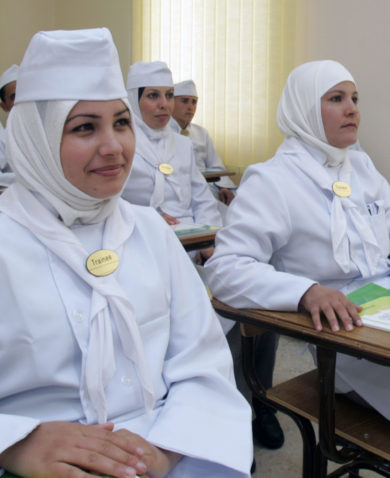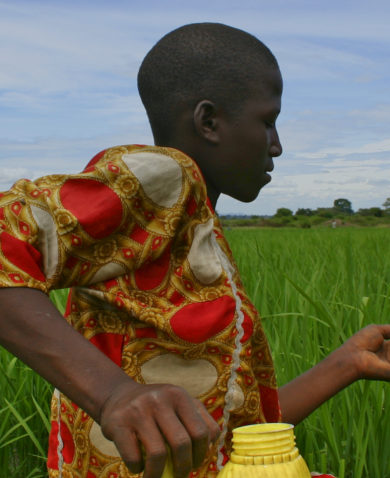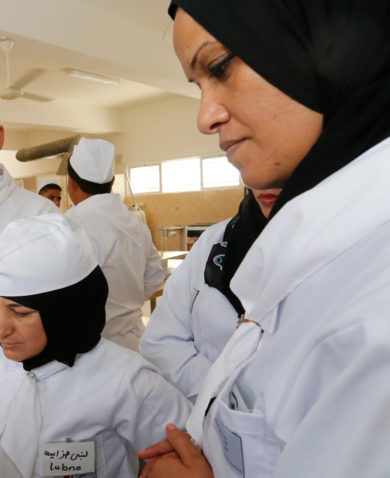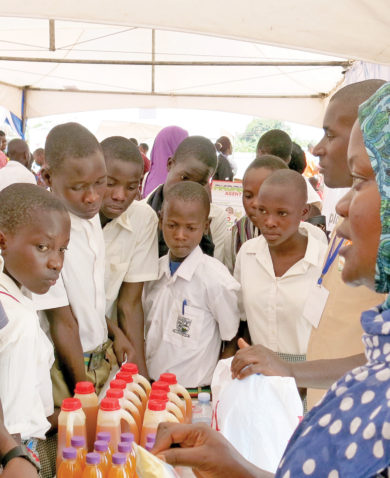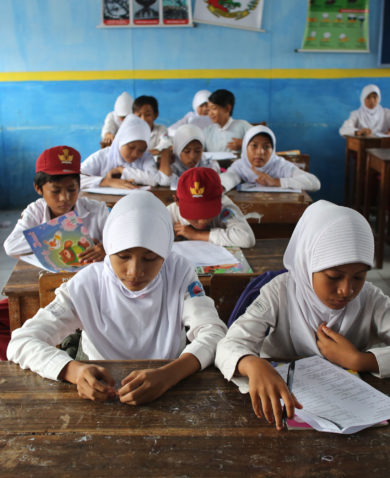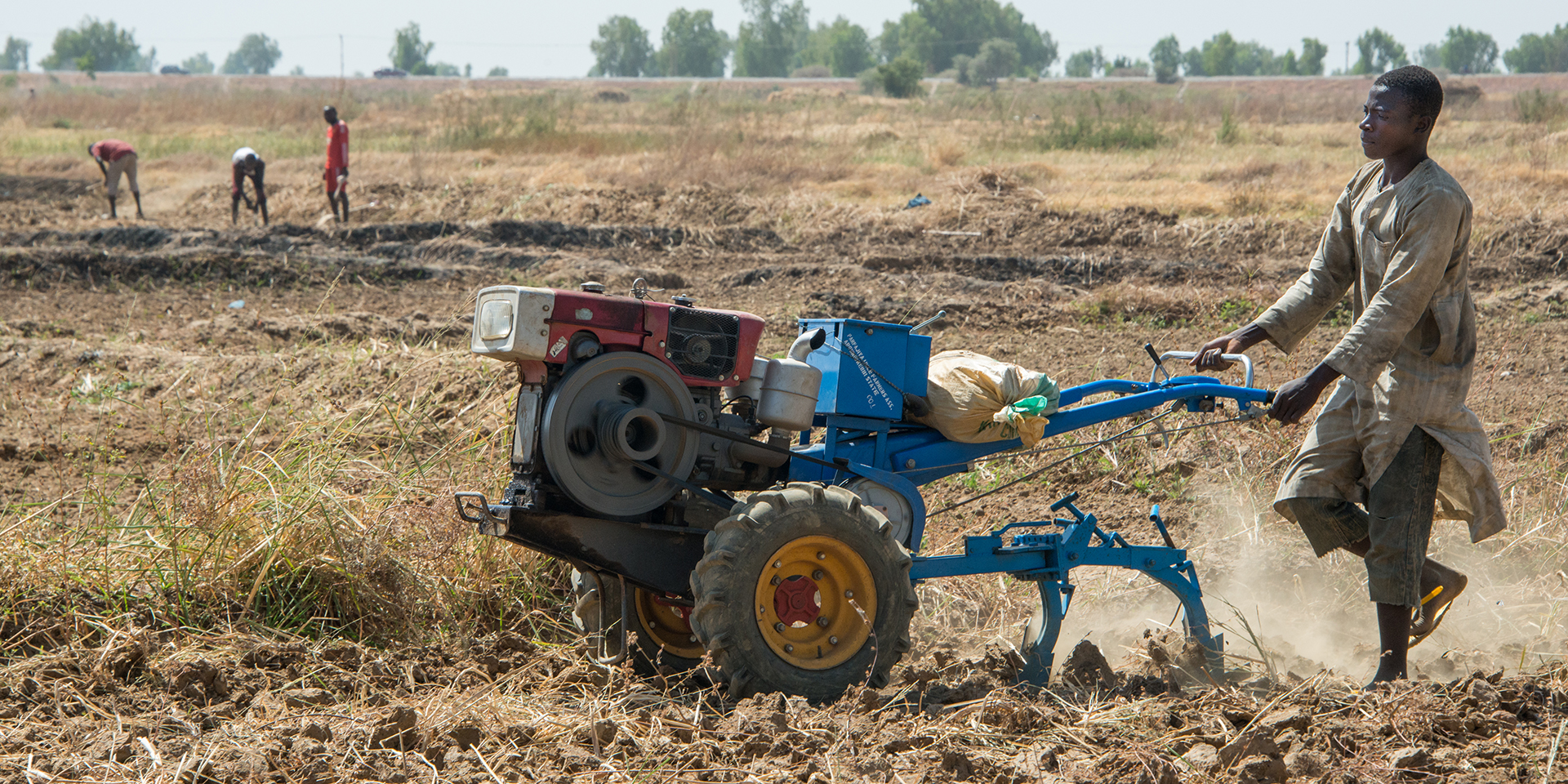
To Lower Youth Unemployment, Play the Matchmaker
September 7, 2017 | 5 Minute ReadYouth unemployment is high in developing countries, yet many jobs go unfilled. How can the development community help overcome this skills mismatch and increase youth employment?
This blog post was originally published by Making Cents International as part of their Future of Work blog series ahead of the Youth Economic Opportunities Summit.
Youth unemployment is a huge issue in the developing world. According to the International Labour Organization, 71 million youth were estimated to be unemployed in 2016 and 37 percent of working youth live in poverty, suggesting underemployment. Yet, this doesn’t necessarily mean that jobs don’t exist — often, a mismatch between the market’s labor needs and the skills of unemployed youth prevents young people from finding work.
Young people in developing nations often recognize that to increase economic opportunities for themselves, they need to further their skillset beyond what is learned in a standard classroom. Yet, they have trouble identifying exactly what the private sector needs or how to acquire these skills. At the same time, private sector firms often recognize the potential held in the next generation, but find it difficult to overcome the skills gap that stands between these youth and well-compensated employment.
In this equation, implementers can do more than just provide training; they can help employers and youth overcome this gap by putting youth in charge of their own development, focusing youth skills development on employer needs, and helping potential employers to understand the advantages of hiring these youth. This role can take many forms — from helping youth to create organizations that foster skills growth and private sector engagement, to co-creating training programs with private sector firms geared toward the unique needs of the firm and their potential youth employees, and almost anything in between. Regardless, by proactively connecting motivated young people directly with a potential labor market, it is possible to empower them to increase their own economic opportunity, provide significant value to employers, and contribute positively to their families and communities. This article provides four examples of where this has worked on the ground.
Youth leading the value chain through a scalable model in Uganda
Youth in Uganda are creating new economic opportunities for themselves with support from the Feed the Future Uganda Youth Leadership for Agriculture Activity (YLA). YLA conducted an extensive stakeholder analysis across the country to identify unique entry points where young people are already leading the charge to create economic opportunity, advance their technical knowledge and learn soft skills. In one entry point, YLA supported the youth-founded Equator Seeds Limited (ESL) seed production company, assisting the expansion of their outgrower farmer program. YLA helped ESL hire six recent university graduates as full-time agronomists to train 65 young, community-based facilitators in the proper techniques for growing high value seed who, in turn, work with 6,500 youth farmers on land preparation, crop management, and harvesting. Through this agriculture and workforce training, young farmers are also pushed to think strategically about the care their crop needs to increase yields and the consistency of care they must provide to achieve this. By linking these young farmers with ESL, the company is able to buy a steady supply of seeds from these outgrowers, with the goal to increase output from 8,000 metric tons to 13,750 metric tons of seeds. These young farmers are able to increase their yields as well — one young couple, Carlos and Scovia, brought in an additional income of approximately $915 in a single harvest of one hectare of land, which they are reinvesting to expand their small grocery shop, improve their home, and buy an additional two hectares of land. Youth farmers have made more than $123,000 in total in 2017. Community-based facilitators also receive a 10 percent commission on the total sales of each farmer trained, earning $4,723 to date in 2017, and newly graduated agronomists have an opportunity for full-time employment.
Empowering young STEM entrepreneurs with the skills to manage a business
Elsewhere in Uganda, the Feed the Future Commodity Production and Marketing Activity (CPM) served as an incubator for five youth-led information and communication technology firms. CPM encouraged the five companies to come together to form a new organization called Akorion (or “farmer” in the local language), and provided office space and business connections within the agribusiness sector in Uganda. Akorion noticed a need in the marketplace, and created a digital profiling tool that captures information about individual farmers; the type, cost, usage, and volumes of inputs they need per season; and GPRS maps of farmers’ fields. Akorion provides this information to banks, insurance companies, business service providers, and farm input suppliers through a digital platform. With CPM’s support, Akorion has created a win-win for farmers and the private sector by giving agribusinesses a better understanding of their customers while farmers receive more tailored products and assistance from actors along the value chain. Akorion has profiled 20,000 farmers, created 460 jobs for youth, and served as an opportunity for its founding members to become successful entrepreneurs.
Giving youth the chance to build a career in hospitality in Jordan
In Jordan, the tourism market around the Dead Sea will generate 6,000 new jobs in the next four years, but youth in Jordan lack the basic hospitality and language skills to fill these positions. The Jordan USAID Building Economic Sustainability Through Tourism (BEST) project is assisting the InterContinental Hotels Group to find interested local young men and women in the Jordan Valley and provide them with a series of practical hospitality courses and certifications. In the words of a young man participating in a similar program in Amman, “There are not enough culinary institutes or universities offering education or training that is affordable. Young people such as myself, who come from large families, cannot draw on family funds to enter higher education or training institutions.” By supporting the InterContinental Hotels Group to offer courses targeted at local youth, motivated young Jordanians have an opportunity to build their skills close to home without breaking the bank and while the company accesses well-trained employees from the area. Across BEST-supported tourism initiatives in Jordan, 8,500 students have graduated from vocational training centers with a 70 percent employment rate, enabling them to engage with and positively contribute to the economy and the society around them.
Turning farming into a business in Nigeria
In Nigeria, the USAID Maximizing Agricultural Revenue in Key Enterprises and Targeted Sites II (MARKETS II) Activity helps farmers, 30 percent of whom are under 29, change their mindsets to think of agriculture as a business. In addition to offering training for young farmers on improved agricultural practices and microenterprise fundamentals, the activity also helps smallholder farmers connect with micro and small agro-processers. These agro-processors have requirements for the produce they buy, so MARKETS II helps farmers understand those requirements and use their burgeoning business mindset to deliver. The activity focuses on youth because it sees them as critical to creating long-term improvements in the agriculture sector in Nigeria. With support from MARKETS II, over one million young farmers have taken advantage of training opportunities and are utilizing improved technologies and management practices. Young people who learn early to run their farms like a business will bring an entrepreneurial spirit and perseverance to the long careers they have ahead of them, and can grow into leaders with the ability to influence how farming is done in their communities.
While education is often cited as the groundwork for the future — the main way to prepare children to take on the problems of tomorrow — our experience has shown us that the future of work for young people will continue to depend upon them developing the skills the market demands and the market’s ability to match youth to jobs properly. Often, a disconnect prevents this from happening: Youth don’t know what skills employers are looking for or how to build them, while employers are left with positions they’re unable to fill with qualified candidates. Development implementers can fill a crucial role by understanding the needs of both groups and facilitating linkages between them. Moreover, it’s not only youth programs that can and should play this role. With large youth populations in many developing countries, purposefully focusing on youth can be an effective way to increase yields on an agriculture project, or grow micro and small enterprises through an economic growth activity. While youth unemployment is significant in many developing countries, serving as a matchmaker and offering support to youth and companies to do this on their own in the future will chip away at the gap.










